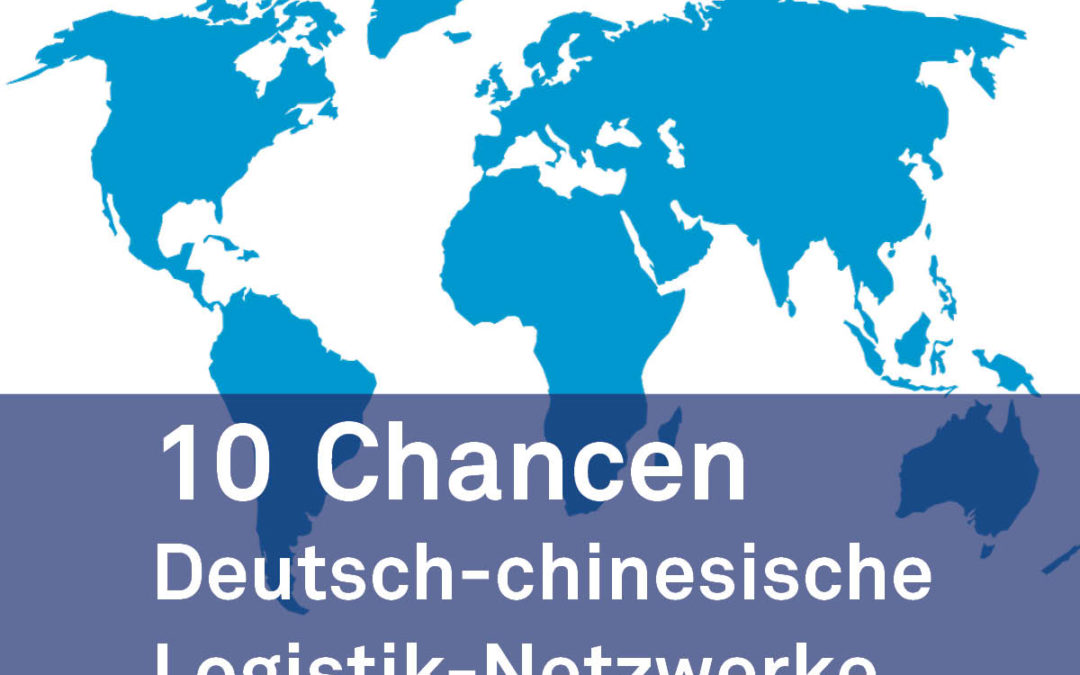Germany and China are among the world’s largest economic powers. They are competitors, but at the same time strategic partners. This applies not only to trade, but also, for example, in the field of research and innovation, where Germany’s traditional technological strength and China’s implementation strength complement each other very well. Targeted linking of science and industry in both countries therefore plays an important role in meeting the challenges of today and tomorrow. For this reason, the German-Chinese logistics network ALUROUT was founded three years ago with funding from the BMBF. Of the numerous opportunities that arise for all participants in such a logistics network, we have summarized the ten most outstanding opportunities for you below.
- Access to innovations and technologies
In order to master the challenges of the profound, digital transformation, future-oriented innovations and technologies are being developed both in China and in Germany. Even beyond the topic of digitization, there are other areas on which meticulous research is being conducted in both countries to find solutions. These include, for example, the use of alternative energies and drive technologies, autonomous vehicles and robotics, and urban logistics. Successful linking creates the basis for the necessary, technical exchange between China and Germany and thus also for access to already developed solutions to problems.
2 Joint validation of prototypes
Germany is traditionally a technology-strong country. However, legal barriers can make the practical testing of novel technologies and prototypes in everyday life significantly more difficult or even impossible. However, China’s implementation strength, characterized by openness and willingness to experiment with new technologies, as well as partially less strict regulations, enable the early validation of technology prototypes in China. Sino-German logistics networks such as ALUROUT provide access to contacts and thus the basis for testing German prototypes in China. In this way, new, innovative technologies can be developed and marketed more quickly.
3.finding partners for cooperation projects
The right solution has not already been developed for every challenge. In such a case, new solutions to problems can be developed in cooperative research and industry projects, among others. These cooperation projects also promote scientific exchange between Germany and China. In addition, participating companies have the opportunity to directly draw on and use the project results to solve their challenges. In this context, German-Chinese logistics networks offer a suitable platform for bringing together international partners with different competencies and challenges for cooperation projects.
4.getting to know the needs of industry
One basis for the sustainable success of application-oriented research projects is knowledge of the actual needs of industry. Which needs these are can be found out in a bilateral exchange. However, if the necessary contacts in industry are still lacking, for example because of the geographical distance between Germany and China, then a logistics network can help to gain access to decision-makers from industry.
5 Developing and expanding cultural competence in China
China’s importance at the international level has grown increasingly in recent years, and is expected to continue to do so in the coming years. Building and expanding cultural China competence is therefore very valuable for all those who want to become more aware of social differences or improve their job prospects in (Chinese) foreign countries. Sino-German networking in a logistics network such as ALUROUT promotes intercultural competence for China through, among other things, the acquisition of general China knowledge, on-site visits, and the direct linking of Germans and Chinese.
6. build up China-specific expertise
Through a regular range of events organized as part of a logistics network, interested parties can gain access to expertise, further training opportunities as well as the latest research results. Even if it is not possible to conduct or participate on site in China, the use of digital media and hybrid event formats offers participants the opportunity to benefit from German-Chinese knowledge transfer. By dealing with characteristic challenges and solutions for China and by gaining insights into the Chinese research, business and innovation landscape, participants have the opportunity to build up China-specific expertise and to learn from German-Chinese alumni.
7 Promoting internationalization
Internationalization can be a central, strategic building block for being attractive and competitive in global competition. Nowadays, this is true in the field of science as well as in the field of business. German-Chinese logistics networks provide a platform for this, enabling them to present themselves in a targeted manner. Research institutions and companies as well as individuals can use the opportunities of linking to advance their German-Chinese internationalization strategy.
8 Insights into best practices
An essential goal of a logistics network is the discourse on content. The problems that affect science and business in Germany and China show overlaps. In this context, sharing experiences plays a special role. In this way, best practices can be identified and synergy effects of the network can be exploited.
9 Shaping future issues on an interdisciplinary basis
When it comes to developing forward-looking solutions to problems, open source approaches are more in demand today than ever before. This form of cooperation thrives on an active community, which sometimes voluntarily shares and exchanges its knowledge. The same concept can be applied to linking science and business. For those who want to help shape the content of future topics, logistics networks offer the opportunity to find like-minded people and work together on the exciting issues of the day. Since the BMBF-funded logistics networks such as ALUROUT are also linked to each other, forming a network of networks as it were, this also offers numerous opportunities for collaboration on interdisciplinary future projects.
10 Maintaining and expanding contacts
Participation in cooperative activities in a German-Chinese logistics network can be used to maintain existing connections in science and business. In addition, networking events also offer the potential to establish new contacts to alumni in China as well as in Germany. This offers everyone the opportunity to further expand their personal German-Chinese network.
